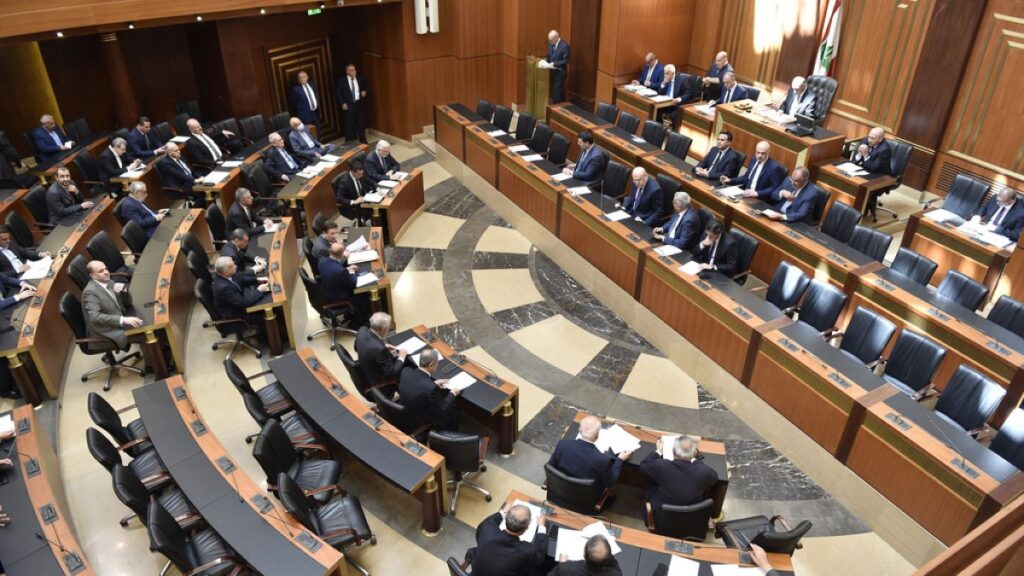Following tense scenes early in the session, the first round of Thursday’s vote concluded with 71 votes for Joseph Aoun, the widely supported army commander.
Lebanon’s parliament has elected army commander Joseph Aoun as president, breaking a two-year deadlock. Aoun’s emergence came after parliament held the two rounds of voting session to elect the country’s president on Thursday.
In the first round, Lebanese army commander Aoun secured 71 out of 128 votes and fell short of the two-thirds majority required for an outright win. Of the rest, 37 lawmakers cast blank ballots, and 14 voted for “sovereignty and the constitution.”
The vote, which saw all 128 members of the legislature present, took place amid chaotic scenes early in the session, with lawmakers shouting over one another.
Aoun was considered to be the preferred candidate of Lebanon’s key allies, the United States and Saudi Arabia, whose support will be crucial as Lebanon works to rebuild after a 14-month conflict between Israel and Hezbollah.
Backed by Hezbollah, Suleiman Frangieh, the leader of a small Christian party in northern Lebanon with close ties to former Syrian President Bashar al-Assad, announced on Wednesday he had withdrawn from the race and endorsed Aoun, apparently clearing the way for the army chief.
12 failed attempts
The parliamentary election was the first since June 2023 and the 13th since former President Michel Aoun’s term ended on 31 October, 2022.
While 12 previous attempts have failed to elect a successor to the former president, strong indications emerged on Wednesday that Thursday’s vote may finally result in the selection of a new head of state.
Other candidates in the election included Jihad Azour, a former finance minister now the director of the Middle East and Central Asia Department at the International Monetary Fund; and Elias al-Baysari, the acting head of Lebanon’s General Security agency.
Prone to deadlock both for political and procedural reasons, Lebanon’s fractious sectarian power-sharing system has been through several extended presidential vacancies, with the longest lasting nearly two and a half years between May 2014 and October 2016. It ended when former President Michel Aoun was elected.
As a sitting army commander, Joseph Aoun was technically barred from becoming president, but the ban had been waived twice before and had to be waived again.
A head of state in Lebanon is elected by a two-thirds majority of the 128-member house in the first round of voting or by a simple majority in a subsequent round. However, due to the constitutional issues surrounding his election, Aoun needed a two-thirds majority even in the second round.
Lebanon’s caretaker Prime Minister Najib Mikati on Wednesday expressed optimism that the vote would pass. His government, which has run Lebanon for the last two years, has reduced powers because a sitting president did not appoint it.
Joseph Aoun, the new Lebanese president, now faces a daunting task.
Apart from implementing the ceasefire agreement that ended the Israel-Hezbollah war and seeking funds for reconstruction, the government has a battered economy and power infrastructure to revive.
Beirut is six years into an economic and financial crisis that decimated the country’s currency and wiped out the savings of many Lebanese.
In 2022, the country’s leaders reached a preliminary agreement with the IMF for a bailout package but have made limited progress on reforms required to clinch the deal.


